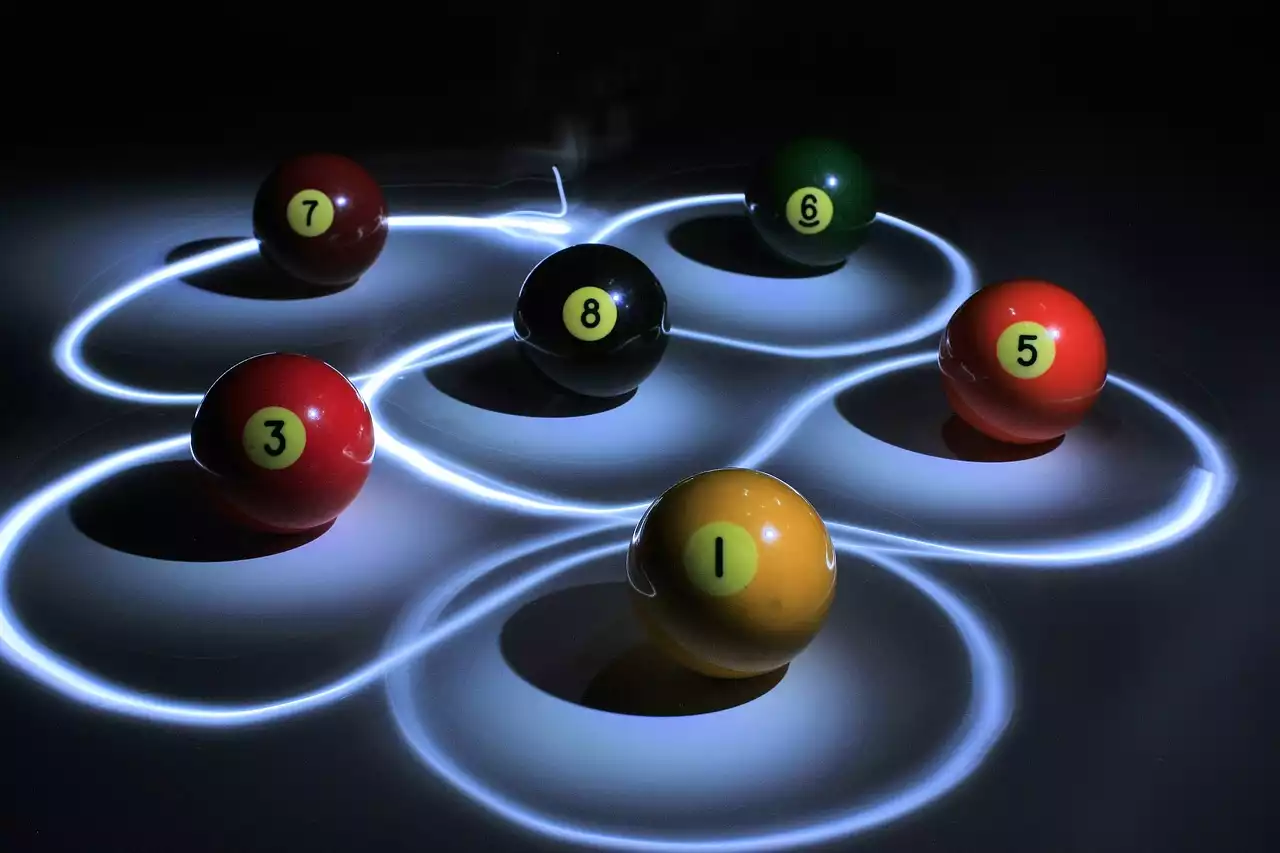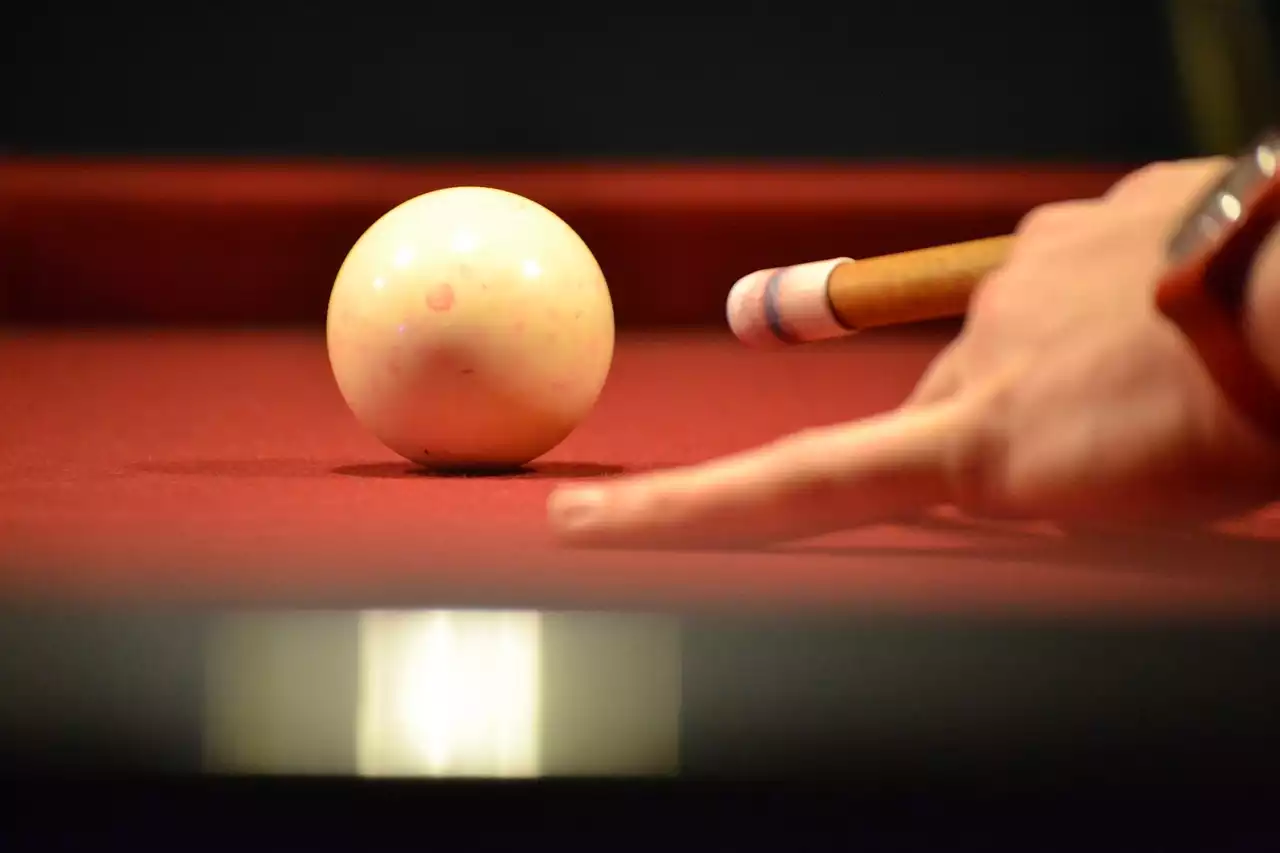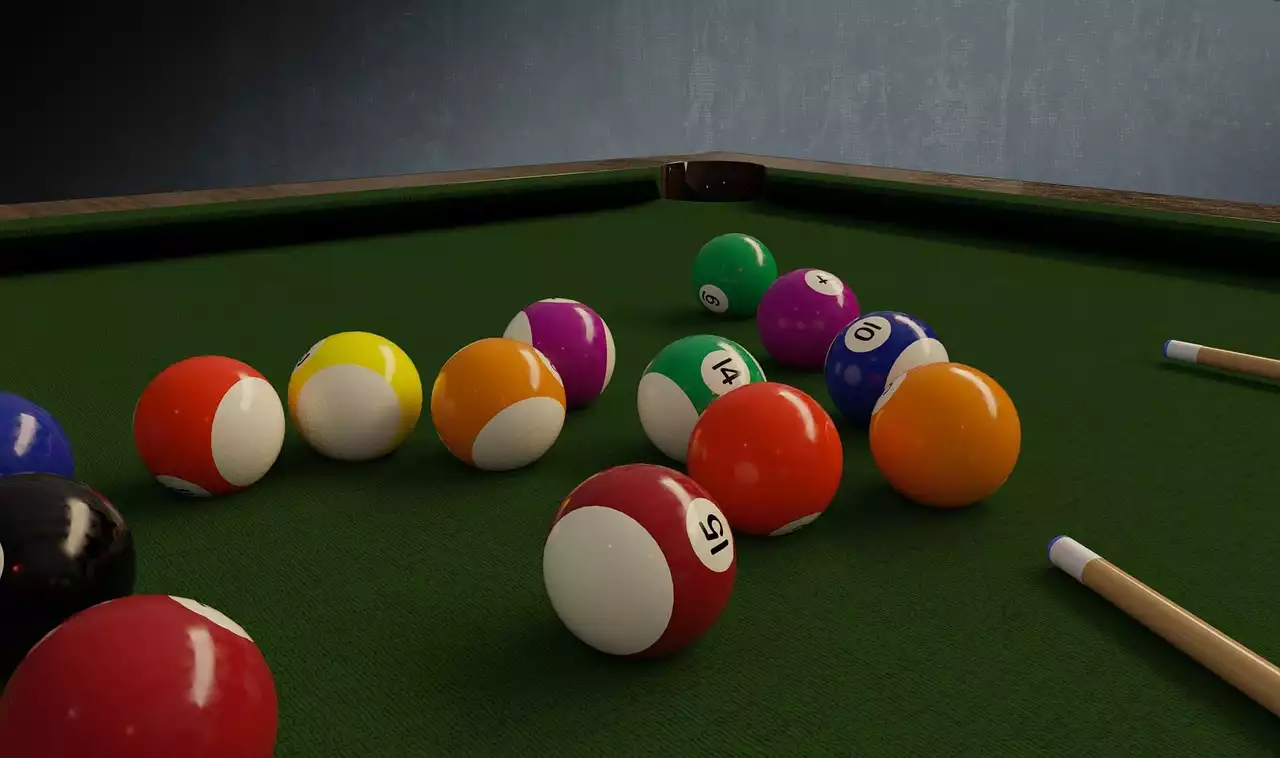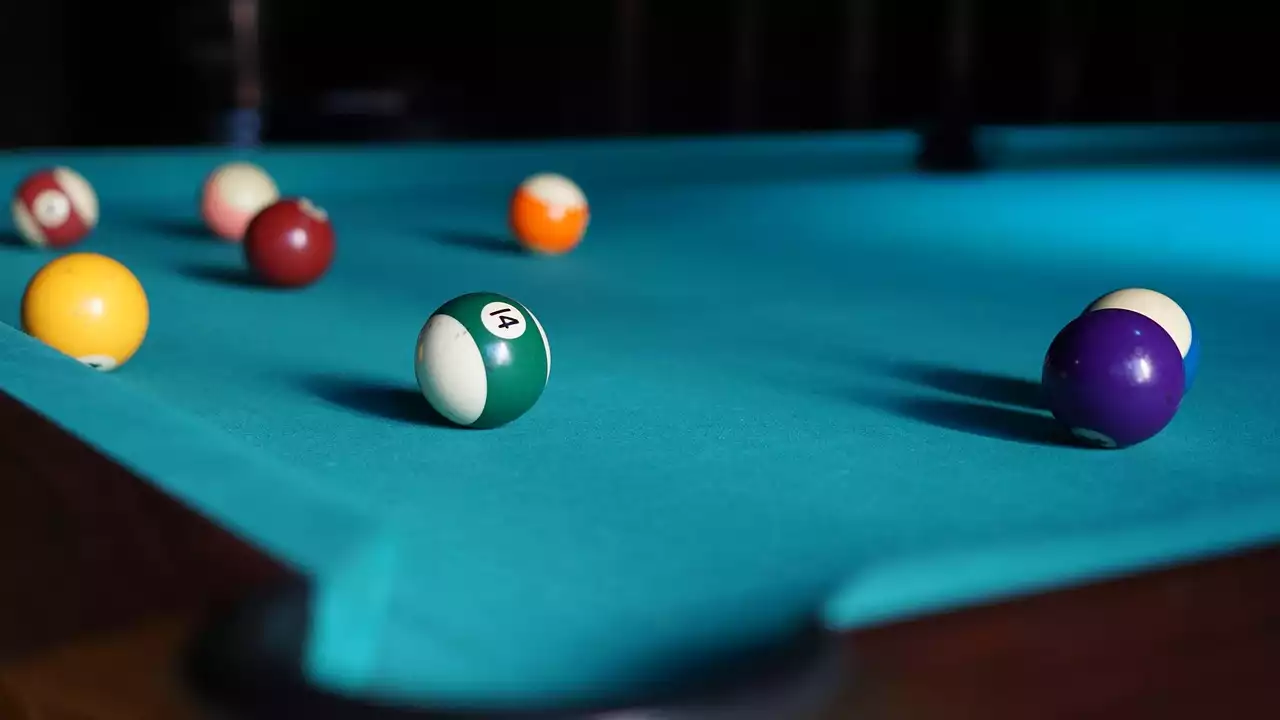The Basics of Snooker
Snooker is a game that originated in the United Kingdom and is played on a large table with six pockets. The game is played with 21 balls, including 15 red balls, six colored balls, and a white cue ball. The object of the game is to score more points than your opponent by potting the balls in the correct order.
The game starts with the first player potting a red ball, followed by any colored ball of their choice. The other player then takes their turn, and the game continues in this way until all of the red balls have been potted. At this point, the players must pot the colored balls in order of their value, starting with the yellow ball and ending with the black ball.
One unique feature of snooker is that players can earn extra points by potting multiple balls in a single shot, known as a "break." The player with the most points at the end of the game wins.
The Rules and Gameplay of 8-Ball
8-ball is perhaps the most well-known variation of pool, played with a standard set of 16 balls on a table with six pockets. The game is played with two players or teams, with each player or team attempting to pot all of their balls and then the 8-ball to win.
At the beginning of the game, the balls are racked in a triangle shape with the 8-ball in the center. The first player then attempts to pot a ball, and if successful, continues until they miss or fail to pot a ball. The other player then takes their turn, and the game continues in this way until all of the balls have been potted.
One unique aspect of 8-ball is that players must call their shots before taking them. This means that players must specify which ball they intend to pot and which pocket they intend to pot it in. If a player successfully pots the ball they called, they continue their turn. If they fail to pot the called ball or pot another ball by mistake, their turn ends.
The Popular Game of 9-Ball
9-ball is a fast-paced variation of pool played with nine balls on a table with six pockets. The game is played with two players, with the objective being to pot the 9-ball before your opponent does.
At the beginning of the game, the balls are racked in a diamond shape with the 1-ball at the front and the 9-ball in the center. The first player then attempts to pot the 1-ball and continue potting balls in order until they reach the 9-ball. If the player successfully pots the 9-ball, they win the game.
One unique aspect of 9-ball is that players must hit the lowest numbered ball on the table first, except when making a combination shot. This adds an extra level of strategy to the game, as players must plan their shots carefully to ensure they can continue their turn.
The Unique Style of Straight Pool
Straight pool, also known as 14.1 continuous, is a variation of pool played with 15 balls on a table with six pockets. The game is played with two players, with the objective being to score as many points as possible by potting the balls in order.
At the beginning of the game, the balls are racked in a triangle shape. The first player then attempts to pot any ball on the table, and continues until they miss or fail to pot a ball. The other player then takes their turn, and the game continues in this way until all of the balls have been potted.
One unique aspect of straight pool is that players must nominate a specific pocket for each ball they intend to pot. This adds an extra level of strategy to the game, as players must plan their shots carefully to ensure they can continue their turn and earn as many points as possible.
How to Play One-Pocket
One-pocket is a variation of pool played with a standard set of 16 balls on a table with six pockets. The game is played with two players, with the objective being to pot more balls in your designated pocket than your opponent.
At the beginning of the game, each player chooses one of the corner pockets as their designated pocket. The balls are then racked in a diamond shape. The first player then attempts to pot a ball in their designated pocket, and continues until they miss or fail to pot a ball. The other player then takes their turn, and the game continues in this way until all of the balls have been potted.
One unique aspect of one-pocket is that players must be strategic in their shot selection, as they must aim to pot balls in their designated pocket while preventing their opponent from doing the same. This requires careful planning and execution, making one-pocket a challenging and exciting variation of pool.
The Lesser-Known Games of Killer and Cowboy Pool
Killer and cowboy pool are two lesser-known variations of pool that are still enjoyed by many players around the world. Killer is a game played with a standard set of 16 balls on a table with six pockets. The game is played with three or more players, with each player attempting to pot a ball and then designate another player as the "killer."
The killer then attempts to pot balls and eliminate the other players from the game, while the other players attempt to pot balls and avoid being eliminated. The last player remaining in the game is the winner.
Cowboy pool is a game played with a standard set of 15 balls on a table with six pockets. The game is played with two or more players, with each player attempting to pot all of their balls and the 8-ball to win.
One unique aspect of cowboy pool is that players are allowed to shoot the cue ball from anywhere on the table, rather than behind the head string as in other variations of pool. This adds an extra level of strategy to the game, as players must carefully consider their shot selection and positioning.
Differences in Equipment for Each Variation
Each variation of pool requires different equipment, with variations in table size, ball size, and cue weight. For example, snooker tables are much larger than other pool tables, with smaller pockets and smaller balls. 9-ball is played with smaller balls than other variations of pool, while straight pool requires a heavier cue ball.
It's important to choose the right equipment for the variation of pool you plan to play, as this can impact your performance and enjoyment of the game.
Choosing Which Variation to Play
With so many variations of pool to choose from, it can be difficult to decide which one to play. The best way to choose is to try out different variations and see which one you enjoy the most. Consider your skill level and preferred playing style, and don't be afraid to experiment with new variations to keep your game fresh and exciting.
Tips for Improving Your Pool Game
No matter which variation of pool you choose to play, there are several tips you can use to improve your game. First, practice regularly to develop your skills and gain confidence on the table. Second, focus on your shot selection and aim to make each shot count. Third, stay calm and focused, even when under pressure. Finally, learn from your mistakes and use them as opportunities to improve your game.
By following these tips and exploring the different variations of pool, you can become a skilled and confident player who enjoys this beloved pastime for years to come.




